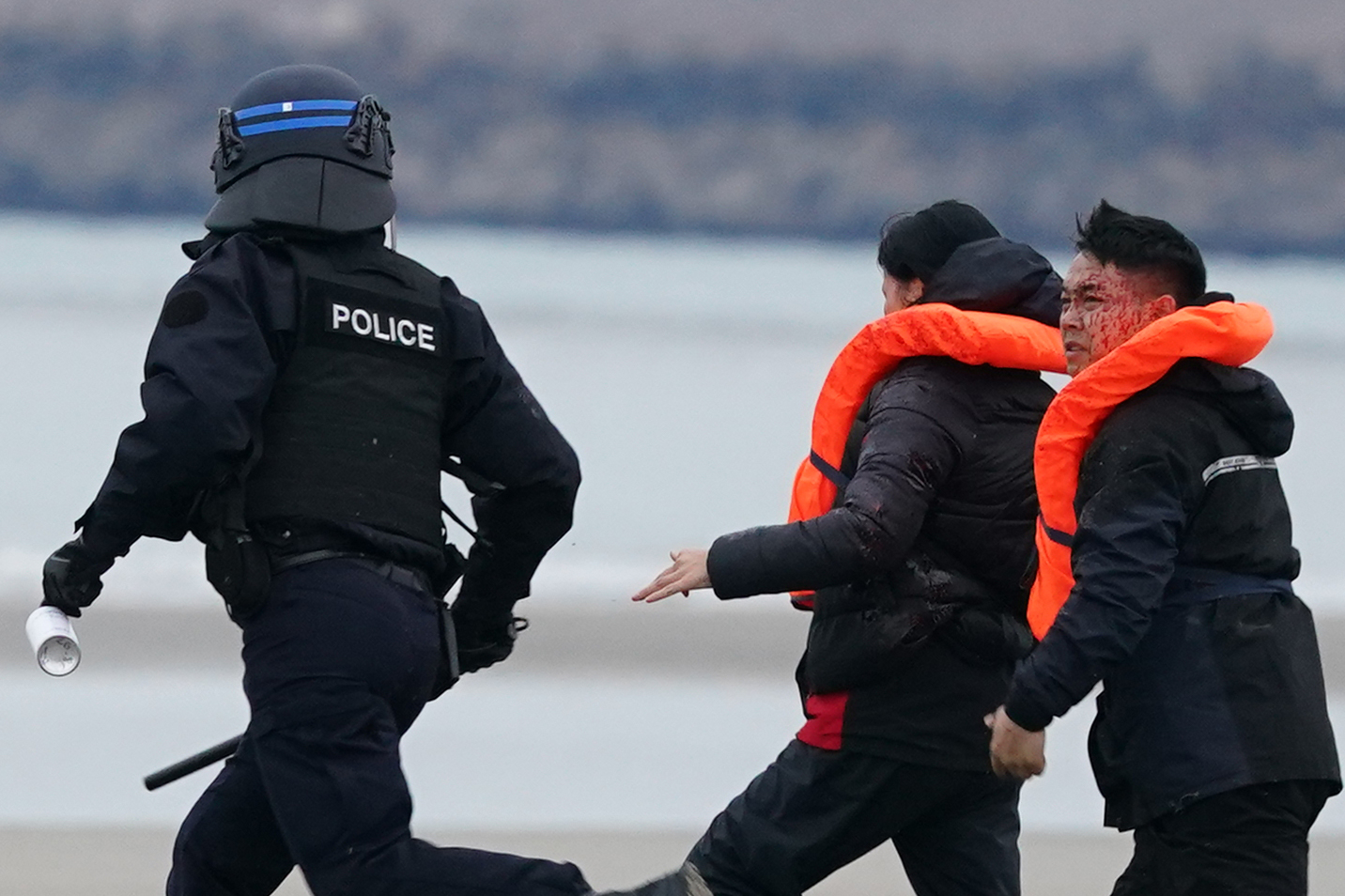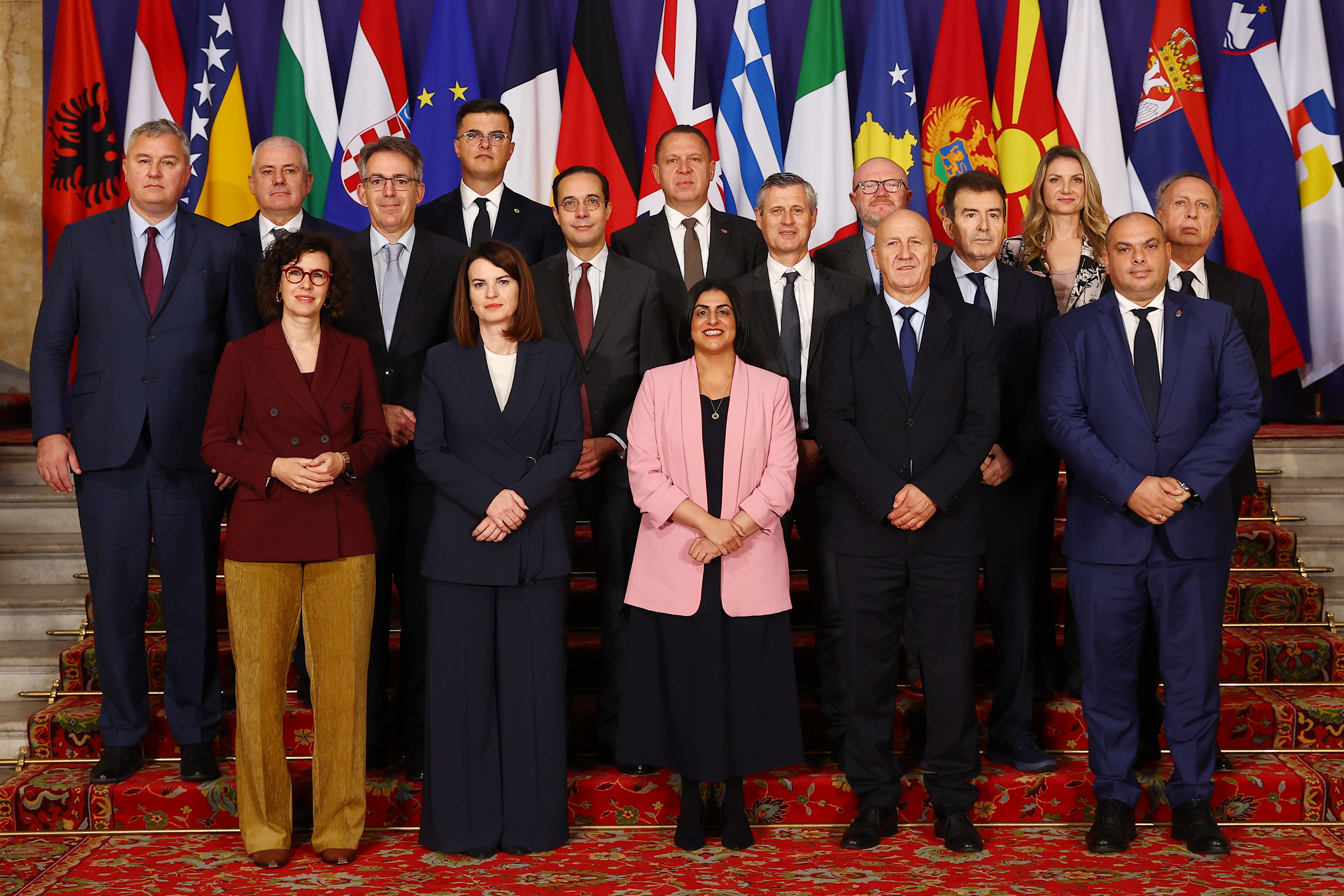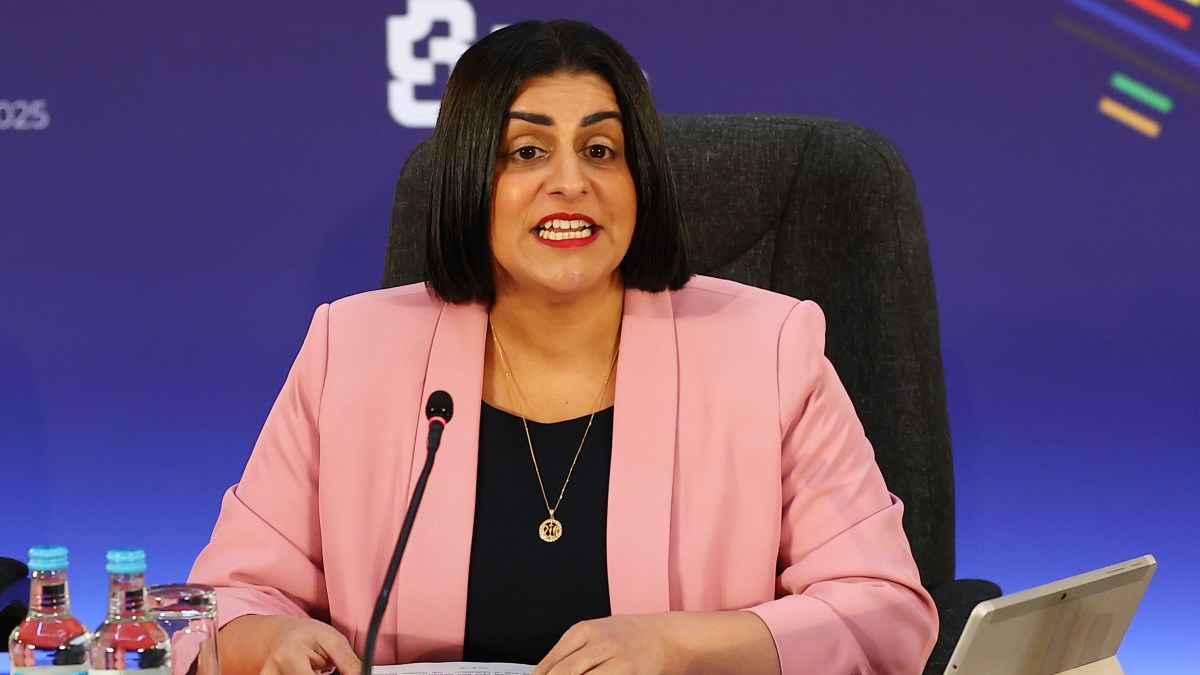British border security officers have been dispatched to the Balkans for the first time to tackle illegal immigration as talks continue to open migrant “return hubs” in the region.
They have been sent to Albania, Serbia, Montenegro, Kosovo, North Macedonia and Bosnia and Herzegovina to stop migrants using the countries on their way towards the UK.
Shabana Mahmood, the home secretary, said the western Balkans area was a “major transit route” for illegal migration and she had instructed UK law enforcement to consider “all options” at their disposal to stop the region being exploited by people smugglers.

A police officer armed with pepper spray tries to stop suspected migrants from boarding a small boat on the beach in Gravelines, France
GARETH FULLER/PA
British border officers are training border guards on how to use drones and biometric technology such as fingerprinting and facial recognition to track the movement of illegal migrants through the countries. They are also sharing new techniques on how to identify visa and passport fraud.
The government is in discussions to deploy Border Force officers in the western Balkans alongside counterparts from Frontex, the EU’s border agency, on joint operations to track down and arrest people smugglers.
The region is one of the main people-smuggling routes into Europe: nearly 10,000 migrants entered through the western Balkans this year. Many end up crossing the Channel in small boats.
Mahmood discussed the proposals with her counterparts at an annual meeting of western Balkan nations being hosted by the UK in London.

Shabana Mahmood with ministers and delegates at the meeting at Lancaster House
PETER NICHOLLS/PA
She said: “Criminal gangs have turned the western Balkans into a major transit route for illegal migration.
“I have instructed UK law enforcement to explore all options including deploying operations in the west Balkans to tackle illegal migration routes.
“I have pledged to do whatever it takes to secure our borders. That is exactly what I am doing.”
The announcement comes as negotiations continue about opening a series of return hubs in the region whereby rejected asylum seekers would be sent after they have exhausted all their avenues of appeal in the UK.
The Times has previously revealed that Britain has approached Kosovo, North Macedonia, Bosnia Herzegovina and several countries outside Europe about the prospect of opening return hubs.
Any deal would require Britain to pay for each failed asylum seeker relocated.
The president of Kosovo, one of the poorest nations in Europe with a population of about 1.6 million, has previously said her country would be open to the idea of hosting one of Britain’s return hubs.
Ministers had hoped Albania would be open to hosting one of Britain’s return hubs but Edi Rama, its prime minister, ruled it out in May.
Senior government sources have previously said the western Balkans was a “plausible” region for return hubs because it is on one of the main routes used by illegal migrants on their way towards the EU.
• What Europe really thinks of Britain’s approach to migrants
Nearly 22,000 illegal migrants used the western Balkans route to enter the EU last year.
Evidence of migrants passing through countries with return hubs is seen as a crucial step towards smoothing the legal process for deporting migrants. The UK would be able to argue that they had the opportunity to claim asylum in a “safe” country but chose not to.
The Balkan nations have been identified as countries that are in need of economically active migrants who can help with developing key industries.
Mahmood told the meeting that Britain and the EU must regain control of their borders with tougher measures or risk “eroding trust” not just in political leaders but nation states themselves.
She said: “The citizens of each of our countries have a very simple expectation of us. The public rightly expect that their government will be able to determine who enters their country, and who must leave.
“Today, in this country, and I know in many if not all of yours, that is not the case. And the failure to bring order to our borders is eroding trust not just in us as political leaders… but in the credibility of the state itself.”
